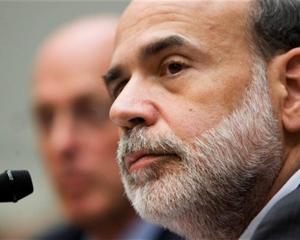Horrified investors watched their wealth erode yesterday as volatile global markets slumped after the failure by United States politicians to reach a deal on rescuing the financial system.
Billions of dollars have been wiped off sharemarkets around the world, with the New Zealand market tumbling 3% yesterday.
ABN Amro Craigs broker Chris Timms said the lack of confidence in financial markets would have a major effect on New Zealanders in various ways.
Banks were unwilling to lend money to each other, retail banks could soon go back to asking for a 25% deposit for buying a house, rules on what banks were willing to fund would change and there would be a focus on the ability of borrowers to pay for their loans.
A slowing domestic economy would follow from a lack of credit, exporters would find markets drying up as overseas buyers ran out of cash and that would lead to increasing unemployment in New Zealand.
For New Zealanders nearing or in retirement, and who have been encouraged to save by successive governments, the effects of recent sharemarket falls will be devastating but not irreversible.
"A lot of people investing in KiwiSaver or retirement funds have their money in a plethora of financial products - managed funds, bonds and equities. They are all at the whim of the market and if those markets are going down, that will have an impact on their overall wealth," Mr Timms said.
If older investors had their portfolios weighted towards managed funds specialising in shares, then they would be feeling "reasonably uncomfortable".
However, as a rule, people nearing retirement tended to change the way their portfolios were structured and that meant less money at risk.
Forsyth Barr broker Ken Lister last night hoped New Zealand would, however, escape the worst of the crisis, having already been through its own, through the finance company collapses.
"Unfortunately, more a key thing for the economy here is the question mark over the 2009 recovery we had picked for next year."
Myles Wealth Management principal Craig Myles said the main issue was whether investors had to take the loss right now, taking the full hit of the loss of wealth at the extreme end of the cycle.
"Seldom does panic selling realise the appropriate result for people. Let's see how the next few days go and whether the bail-out deal can be put together. Not everyone is as badly affected as others.
"In the midst of a banking crisis, you would not want all of your money in a bank. I am not saying banks are under immediate threat in New Zealand, but you want to be in a position where your assets are well positioned in the future."
Diversification remained the key.
Financial market players were last night watching developments in the US, hoping the $US700 billion ($NZ1.05 trillion) plan would sneak through after initially being rejected by Congress by a vote of 228-205.
In Europe, the governments of Belgium, the Netherlands and Luxembourg moved to partly nationalise Belgian-Dutch group Fortis NV and German lender Hypo Real Estate Holding AG secured a credit line from the German Government.
British mortgage lender Bradford and Bingley was brought under the Government's wing, shares of French bank Dexia tumbled on a report that it might need emergency capital and bank rescue deals emerged in Iceland, Russia and Denmark.





